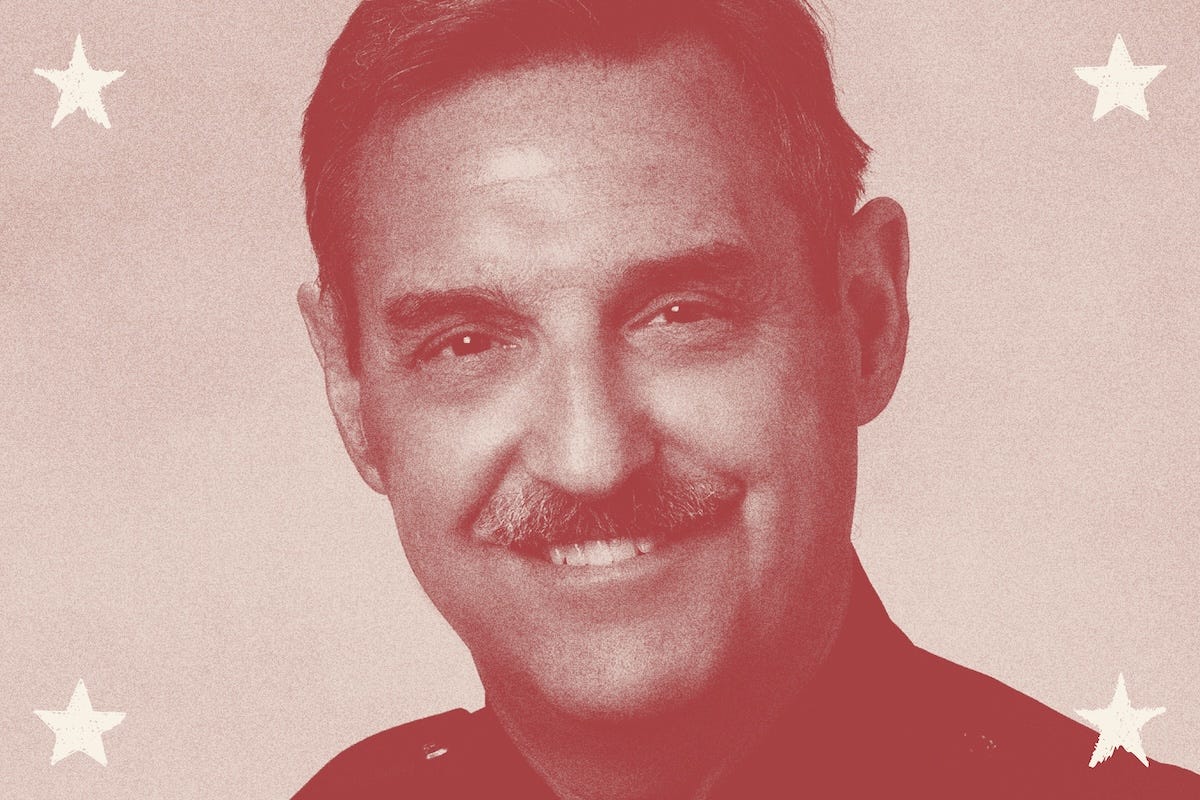I was a police chief in seven cities. Here’s how ICE undermines local law enforcement.
A career cop on why Trump’s strong-arm tactics are destined to backfire.
By Chief Rick Myers (Ret.)
I was sworn in as a police officer in 1977, and since then, I’ve led police departments as small as five officers and as large as over 1,000 employees in a major city. So I speak from a lifetime of experience when I say: You will not find a police officer in the US who opposes deporting immigrants who break the law. Why would we want immigrants who commit crimes here in the US?
However, the overwhelming majority of undocumented immigrants in the US fly below the radar, and don’t break criminal laws; unlawful presence under Federal Law is not even a criminal violation, and unlawful entry for a first offense is a misdemeanor. Most lead normal lives and start families. They go to work, pay taxes, send money home to help people, and take jobs many American citizens don’t want and won’t do. If anything, they tend to be far more conscientious not to break the law, for obvious reasons.
At the start of Donald Trump’s second term, the federal government said that ICE would prioritize going after the “worst of the worst”, which again, police officers strongly support. Instead, we’re seeing thousands of non-criminals being detained. Of course, ICE has the authority to detain anyone here in the country who is undocumented, but why not prioritize pursuing the hardened criminals first?
Infamously, Trump said of Mexicans coming to America: “They’re bringing drugs, they’re bringing crime, they’re rapists.” He called them “bad hombres” and declared war on the cartels, with lots of tough talk. Then we turn around and see the kinds of people getting arrested by masked ICE agents: day laborers in hardware store parking lots, people operating food trucks and taco joints, delivery drivers, 71-year-old ladies. Not exactly the worst of the worst.
Local law enforcement leaders face a serious dilemma when ICE requests assistance in these kinds of operations. Cops are left to decide between helping their federal partners and maintaining community trust. Local police aren’t typically in the immigration business; we’re in the criminal and quality-of-life policing business. And the new aggressive approach to policing from this administration is only making it harder to thread the needle of doing what’s asked of us while maintaining community trust.
I’ve seen where this road can lead. After the murder of Trayvon Martin in Sanford, FL in 2012, I was asked to lead the Sanford Police Department in working to restore the community’s faith in local law enforcement. In modern policing, we have to confront past abuses and long-simmering enmities and try to build a foundation of mutual trust and respect. Part of how we do that is by developing relationships, because it’s hard to hate a person up close. That kind of work takes years, and is built through thousands of individual, one-on-one interactions. It’s also extremely easy to shatter that trust somewhere along the way.
Like respect, trust has to be earned. Someone can’t just put on a badge or a uniform and demand to be trusted. The most important part of a cop’s work is when they’re not on a 911 call, and they get out of their car in the neighborhood they’re patrolling. That’s when officers can really engage with residents, ask them what’s going on, and hear their concerns. That’s the essence of community policing, and ICE’s masked, aggressive tactics undermine the slow, steady progress that this kind of police work accomplishes.
When you hear a public information officer or a chief go on the air begging for tips because nobody’s calling, it tells you something. First, it tells you that there are people in the community who saw a crime and can possibly help identify the suspects but won’t come forward. And it tells you that rather than trusting and respecting the police, the people fear them. Right now, ICE is acting like instilling fear is its goal. But fear doesn’t make for good policing; it’s counterproductive to our work overall.
Almost 20 years ago, I served as the police chief in a city that had a diverse population, where we worked hard to establish a high level of trust with minority residents by developing relationships with leaders throughout the city. Once, when a group of ICE agents was on their way to a major annual event in a nearby town, the agents stopped for lunch in my community. People immediately noticed, and my phone began ringing off my desk with calls from people asking whether the agents were conducting a sweep and if my police department was assisting them. Even then, it was difficult to reassure them that ICE was just passing through. Fast forward to today; how difficult do you think it’s going to be for that chief?
If we, as law enforcement, want to stop violent crime, we need to dedicate our law enforcement resources to pursuing violent criminals while investing time and energy into building trust with the communities we serve. ICE’s current operations set local law enforcement around the country up for failure. Our federal partners should act more like partners, not adversaries.
Rick Myers has served in policing since 1977 and led agencies in Michigan, Illinois, Wisconsin, Colorado, Virginia, Florida, and Colorado. He is a participant in Home of the Brave, a new initiative highlighting the harms of Donald Trump’s second term.




Thank you Chief Myers. We need more voices like yours out in the public square.
Great article! Clearly describing how this administration and its federal enforcement practices are seriously hurting crime fighting efforts across the country instead of helping bring down the crime rates as Trump promised. Thanks Rick!